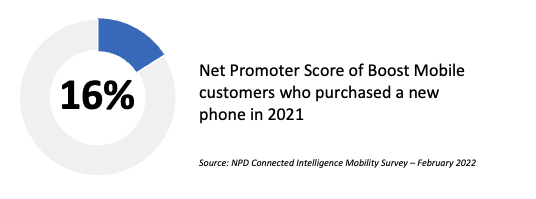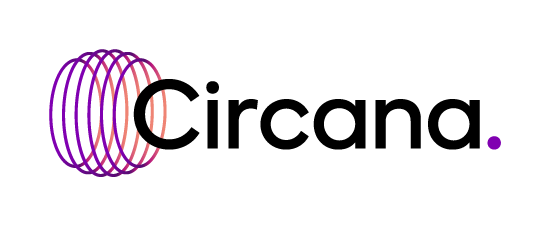
Dish 5G network goes live
Dish Network has long been on the hook (enforced by the FCC) to deploy a 5G wireless network covering 20% of the U.S. population by June 2022 and 70% of the population by June 2023. The company recently announced the commercial availability of its cloud-based Open RAN 5G network in the Las Vegas metropolitan area. Dubbed “Project Genesis”, the new service offers unlimited 5G data, talk and text for $30/month. Currently only a single smartphone, the Motorola Edge+, is provisioned to work on Project Genesis as the existing system does not allow for BYOD activations. Notably, Dish is pledging to hand deliver the phone for beta testers in Vegas. Only a few days after the announcement, Dish also released its quarterly operating results including the Boost Mobile prepaid business, which it acquired from Sprint as part of the T-Mobile/Sprint merger agreement. The company announced that it lost another 343K Boost Mobile subscribers on top of the 245K customers lost in the previous quarter. Dish reported a record high quarterly churn of 5.11%, which is notably higher than its main prepaid rivals, who have managed to keep the churn rates under the 4% threshold.
The NPD Take:
- We have often commented on Dish’s challenging task of adhering to its network build-out commitment while trying to maintain (and grow) the ultra-elusive prepaid base it has inherited from Sprint. The network and device supply challenges of operating as an MVNO (versus being under the wings of a network-running parent) coupled with the heavy promotional campaigns from prepaid rivals have resulted in a loss of 1.2 million customers in six quarters (down from 9.4 million to 8.2 million subs). The downward momentum will likely continue due to the 3G network shutdowns, which will affect Boost Mobile customers with old 3G phones.
- Dish’s 5G network deployment in Vegas is an important first step in meeting the end of June objective of reaching a 20% POP coverage. Reaching this milestone is key, but what is more pressing is Dish’s ability to convert current Boost Mobile customers or convince new customers sign up for Project Genesis. The announced $30/month unlimited plan might be enticing but rivals offer similar rates (for multi-line accounts) on proven networks. While the limited device option is another major handicap, we believe it to be a temporary setback as Dish will likely have a complete lineup featuring the popular iPhone and Samsung models.
T-Mobile ignites the Home Internet fire
T-Mobile last week had a big Uncarrier announcement promoting its FWA (Fixed Wireless Access)-based Home Internet service, which has already attracted over a million customers since its debut in 2021. The carrier will be offering family accounts (minimum two-lines) that are on the top-end Magenta Max plan a $20 discount, bringing the monthly price of the service to $30. Moreover, T-Mobile will offer customers up to $500 to compensate for the early termination fees when they cancel the existing service contract with their cable provider. Customers will also enjoy a 50% discount on a YouTube TV subscription, free one-year Paramount+ subscription as well as a $50 rebate card to be used towards a streaming device of their choice. T-Mobile Home Internet customers who are not mobile phone customers will be able to sign up for the T-Mobile Tuesdays loyalty program.
The NPD Take:
- T-Mobile’s bundling of its Home Internet service with its Magenta Max plan was overdue as rival Verizon has been offering a similar discount (50% off the $50/month fee) for multi-line customers on select 5G plans. Where the T-Mobile solution sets apart is the cable contract buy-out offer, and if history repeats itself when T-Mobile launched the carrier move to buy out mobile phone EIP contracts of switchers, we will be seeing Verizon (and down the line, AT&T) following T-Mobile’s footsteps and launch similar cable contract buy-out campaigns.
- Cable MVNOs Xfinity Mobile and Spectrum Mobile have done an impressive job in poaching a combined 8.5 million users of their cable base and switch them over to their MVNO mobile services. T-Mobile’s new campaign featuring contract buy-outs, bundle discounts and price fixing (which is one of the major pain areas of cable Internet customers) is a strong response, but service reliability will be key. T-Mobile’s 15-day test-drive initiative should be able to give customers the peace-of-mind they need before canceling their Internet contract with their cable operator.


